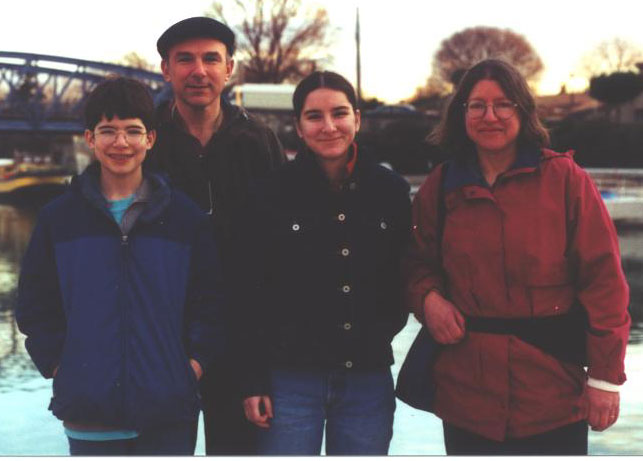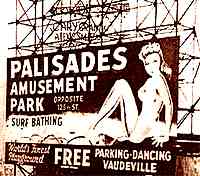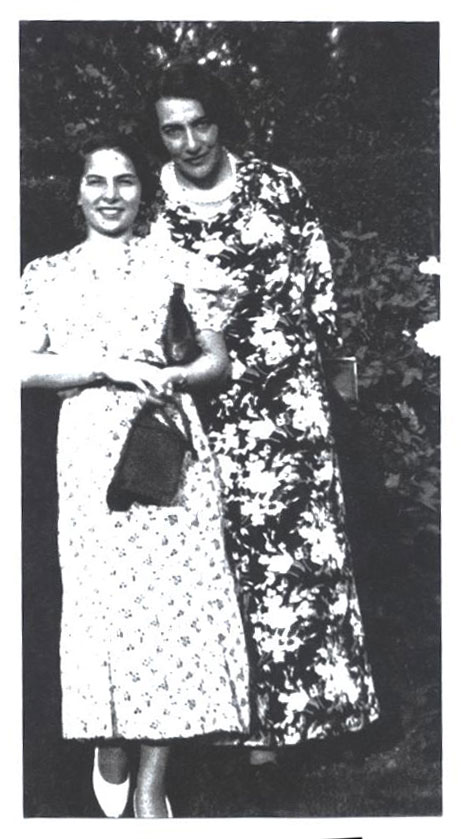|
 
| |
| |
|
A Most Remarkable
Letter!
|
|
|

Peter Crane and his lovely family
|
|
|
|
|
|
|
|
by Peter Crane
I was extremely interested to learn of the
founding of your association, through the chance of an Internet search.
My grandmother and step-grandfather knew Max Ehrlich through the
Kulturbund, and they got together with him on two occasions in the
summer of 1937, when he visited New York.
|
My grandmother described this in a
letter to my mother of 3 August 1937 that I think you should know about.
On the first occasion, they spent the evening together (I'm not sure
who else was there); on the
second, they were part of a group that went to an amusement park in New
Jersey (editor: Palisades Amusement Park). |
 |
|
|
|
|
I should first explain that my grandmother's name was Eva Ortmann, born
Loewenfeld. (Her father founded the Schiller-Theater in Berlin.) She
was a singer who, before Hitler, had sung in Max Reinhardt's production
of Hoffmanns Erzaehlungen, as the mother of Antonia, and in
Francesco von Mendelssohn's production (the first) of
Kasimir und
Karoline, in
which she originated the role of Juanita das
Gorillamaedchen. After Hitler came to power, she was employed by the
Juedische Gemeinde as a choir singer, at the Fasanenstrasse Synagogue
and elsewhere. Her second husband was Fritz Lechner, who was Count
Almaviva in the first operatic production of the Kulturbund,
Figaros Hochzeit, and sang in numerous other Kulturbund operas.
They came to the U.S. in late 1936.
In this letter, she reports that Max Ehrlich wants to open a cabaret
in New York the next year, believing that there is a sufficient
audience for one. But he is there just to
familiarise himself with the situation ("Orientierung"), my
grandmother reports, and will be going back in the winter, because he
directs the whole cabaret over there and does not want to leave them
in the lurch ("im Stich lassen"). It seems quite clear to me from
this that Max Ehrlich could easily have stayed in New York, in safety
and probably with an income, but instead went back to Europe, and to
his fate there, because he was unwilling to abandon the members of his
troupe.

Eva Ortmann who wrote the letter
and her daughter Sibylle the recipient (r. to l.),
Peter Crane's
grandmother and mother in 1936
This letter is one of hundreds that will go into a book that I have
been working on for many years and that will be published by Weidle
Verlag in Germany -- if all goes well, sometime next year. I am
particularly happy to be able to tell the story of Max Ehrlich,
through my grandmother's letter, just because somewhere I read some
disparaging comment about him by a survivor of Westerbork -- something
to the effect that he made efforts to avoid being sent to the East
(which, even if true, would be perfectly understandable). I think it
is important for people to know that if it were not for his conscience
toward others, he never would have been in Westerbork to begin with.
Peter Crane
cranepbko@earthlink.net
|
|

